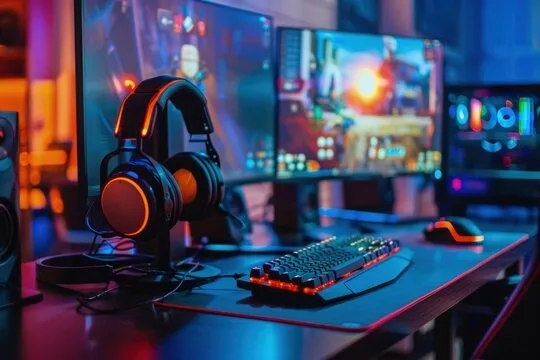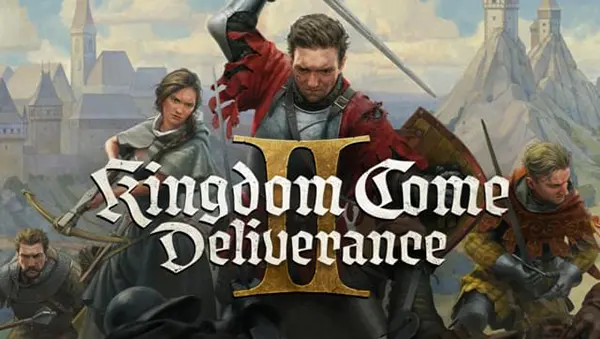
Is Renting a Game Server Worth It? Find Out Now!
In the dynamic world of online gaming, the debate about whether to rent a server or use a personal one remains a hot topic. While some gamers prefer the control and customization of personal servers, others find rented servers more reliable and convenient. This article delves into the pros and cons of both options, helping you make an informed decision for your gaming needs.
Why Servers Are Needed When Playing Online
Online gaming has evolved significantly over the years, moving from simple peer-to-peer connections to complex server-based architectures. Servers play a crucial role in ensuring smooth gameplay, reducing lag, and providing a centralized point for data management. When multiple players join an online game, the server manages all the connections, ensuring that everyone has a seamless experience. This is particularly important in games that require real-time interaction and quick response times, such as first-person shooters and multiplayer online battle arenas (MOBAs).
Moreover, servers offer enhanced security features, protecting players from various online threats. A well-maintained server can fend off DDoS attacks, prevent cheating, and maintain the integrity of the game. For serious gamers, especially those involved in competitive gaming, these aspects are non-negotiable. Thus, having a reliable server is essential for both performance and security reasons.
What Types of Servers Are There?
There are primarily two types of servers used in gaming: dedicated servers and shared servers. Dedicated servers are exclusive to one game or a group of games controlled by the owner. They offer the best performance, with resources solely dedicated to your game, ensuring minimal lag and optimal performance. However, they can be expensive and require a certain level of technical knowledge to manage and maintain.
On the other hand, shared servers host multiple games or applications on the same physical hardware. While they are more cost-effective, they may not offer the same level of performance and reliability as dedicated servers. The resources are divided among different users, which can lead to lag during peak times. However, for casual gamers or smaller groups, shared servers can be a viable option.
In Which Games Can You Create Your Own Server When Playing with Friends?
Several popular games allow players to create their own servers, offering a high degree of customization and control. Minecraft is one of the most notable examples, providing tools for players to create and manage their own worlds. This allows for unique game modes, custom rules, and a personalized gaming experience.
Another game that supports personal servers is ARK: Survival Evolved. Players can host their own servers to create custom maps, manage player interactions, and control game settings. This flexibility is particularly appealing to those who enjoy modding and creating unique gameplay experiences.
Counter-Strike: Global Offensive (CS:GO) also allows players to set up their own servers, which is essential for competitive gaming and custom matches. This feature enables players to practice specific skills, test new strategies, and host private tournaments.

Top 3 Hosting Providers to Support the Operation of a Game Server
When it comes to hosting a game server, choosing a reliable provider is crucial. Here are the top three hosting providers that offer excellent performance and support:
- HostHorde: Known for its excellent uptime and customer support, HostHorde is a popular choice among Minecraft server hosts. It offers a variety of plans to suit different needs, from small private servers to large community servers.
- Nitrado: Nitrado provides hosting for a wide range of games, including ARK: Survival Evolved and Minecraft. It offers easy setup, flexible payment options, and robust customer support, making it a great choice for both beginners and experienced server admins.
- GameServers.com: This provider offers hosting for numerous games, including CS:GO. It is known for its low latency, strong DDoS protection, and extensive server locations worldwide. GameServers.com also provides easy-to-use control panels, making server management a breeze.
Why Renting a Server Might Be a Better Option
Renting a server can offer several advantages over using a personal one. Firstly, it eliminates the need for upfront hardware investment and ongoing maintenance costs. Hosting providers take care of server management, updates, and security, allowing you to focus solely on gaming.
Additionally, rented servers often come with professional customer support. If you encounter any issues, you can rely on experienced technicians to resolve them quickly. This is particularly beneficial for gamers who lack technical expertise or simply prefer to avoid the hassle of server maintenance.
Finally, rented servers typically offer better performance and reliability. Hosting providers use high-quality hardware and optimized network infrastructure to ensure minimal lag and maximum uptime. For competitive gamers, these factors can make a significant difference in gameplay experience.
Making the Right Choice for Your Gaming Needs
Deciding whether to rent a server or use your own depends on several factors, including your technical expertise, budget, and gaming requirements. If you prefer complete control and customization, setting up a personal server might be the right choice. However, if you value convenience, reliability, and professional support, renting a server is likely the better option.
Ultimately, both options have their pros and cons, and the best choice will vary from player to player. By considering your specific needs and priorities, you can make an informed decision that enhances your online gaming experience.




